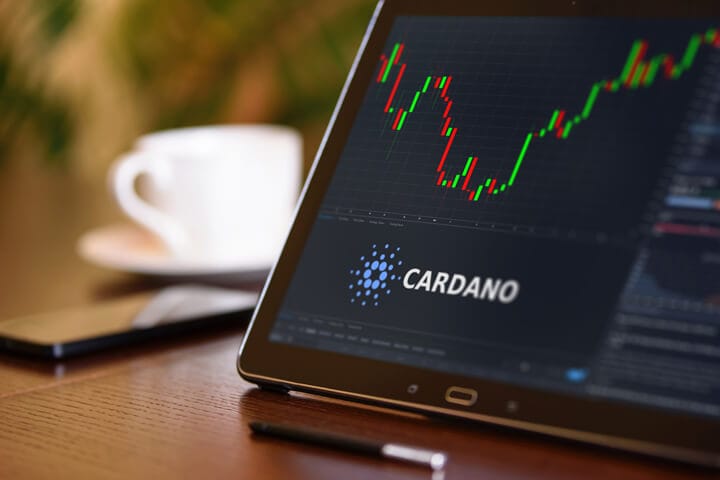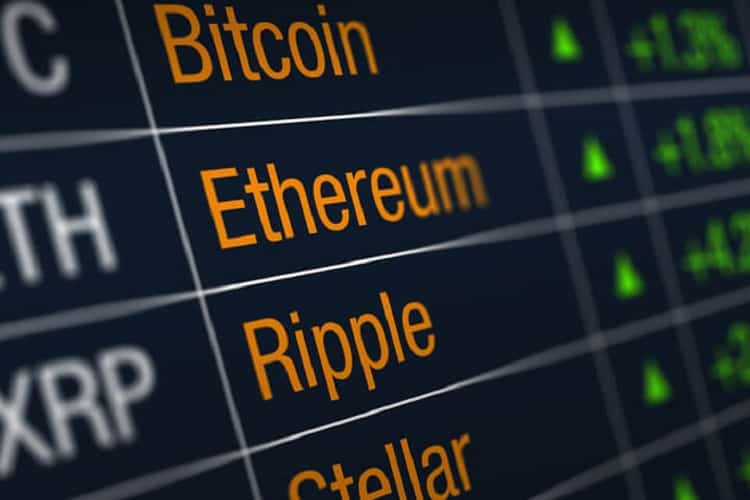Cryptocurrency investing has become increasingly popular in recent years, with more and more investors turning to digital assets as a way to diversify their portfolios and potentially generate returns on their investments. With so many different platforms available to investors, it can be difficult to decide which one is right for you. In this article, we compare two of the most popular cryptocurrency investment platforms – Voyager and Robinhood – so that you can make an informed decision when selecting a platform for your needs.
Author
-
Meet David, the maestro of social media enchantment at Galaxy Marketing. With a keen eye for trends and a flair for strategic storytelling, David turns pixels into engagement gold. In the digital cosmos, he's the navigator steering brands to stellar success. 🚀✨ #GalaxyMarketingExpert
What is Voyager?
Voyager is a cryptocurrency broker-dealer that allows users to buy, sell, and trade digital assets on its platform using fiat currency or other cryptocurrencies such as Bitcoin (BTC) or Ethereum (ETH). The platform supports over 50 different digital assets, including popular coins like Bitcoin Cash (BCH), Litecoin (LTC), Dogecoin (DOGE), Stellar Lumens (XLM), Ripple (XRP), and Zcash (ZEC). Voyager also offers margin trading for select coins as well as options trading for select coins like Ethereum.
What is Robinhood?
Robinhood is an online stock brokerage that recently launched a cryptocurrency trading feature in February 2018. The platform currently supports 16 different cryptocurrencies, including Bitcoin, Ethereum, Bitcoin Cash, Litecoin, Dogecoin, Stellar Lumens, Ripple, Zcash, Monero (XMR), Dash (DASH), OmiseGo (OMG), NEO (NEO), EOS (EOS), Augur REP tokens (REP), ICON ICX tokens(ICX ), Qtum tokens(QTUM )and 0x Protocol tokens(ZRX ). Unlike Voyager which charges fees per trade regardless of the amount invested or asset traded, Robinhood does not charge any fees or commissions for buying or selling cryptocurrency on its platform but instead makes money through its “Gold” subscription service which offers additional features such as margin trading and extended hours trading for stocks and ETFs listed on the US exchanges.
Comparing Fees and Commissions
Voyager charges 0% commission on all trades but does have a spread of up to 0.25% between the bid/ask prices of each asset traded on the platform while Robinhood does not charge any fees or commissions but instead makes money through its “Gold” subscription service which offers additional features such as margin trading and extended hours trading for stocks and ETFs listed on the US exchanges. It should be noted though that both platforms offer discounts if you use their respective native token when making trades. For example, Voyager offers a 25% discount when using its native token VGR while Robinhood offers 10% discount when using its native token RHOC.
Comparing Platforms
When it comes to user experience both platforms have similar interfaces however there are some differences between them. For example, Voyager has an intuitive charting interface with several technical indicators available while Robinhood only has basic charting capabilities with minimal technical indicators available. Additionally, Voyager offers mobile apps for both iOS & Android devices while Robinhood only has an app available for iOS devices at this time.
Comparing Supported Assets
Voyager currently supports over 50 different digital assets while Robinhood only supports 16 cryptocurrencies at this time although they do plan to add more shortly. Additionally, Voyager also allows users to buy fractional shares of certain stocks & ETFs listed on US exchanges while Robinhood only allows users to purchase full shares at this time.
Comparing Security & Regulation
Both platforms are registered with FinCEN & SEC respectively however they differ in terms of security measures taken by each company. For instance, Voyager utilizes 2-factor authentication via SMS & email while also offering cold storage wallets for added security whereas Robinhood does not offer 2FA or cold storage wallets at this time. Additionally, both companies are insured against losses due to theft & hacks however the amount of coverage varies from company to company so it’s important to read through each company’s terms & conditions before investing your funds into either platform.
Conclusion
In conclusion both platforms offer unique features that may appeal to different types of investors depending on their individual needs & preferences. However given the difference in supported assets, fees/commissions charged, security measures taken by each company, etc., it’s important that investors do their research before deciding which platform works best for them.
Suggestion
To Check Out Galaxy Marketing’s Social Media Services: If you’re looking for help managing your social media presence then look no further than Galaxy Marketing! Our team specializes in creating custom strategies tailored specifically toward helping businesses reach their goals whether it’s increasing brand awareness or generating leads/sales from social media campaigns! We understand how important it is these days to maintain an active presence across multiple social media channels so contact us today if you’re looking for professional assistance!
FAQ
Is Voyager good for trading crypto?
Voyager is best for mobile-forward crypto traders who want access to a simple user interface, low fees, and multiple account funding options. While it doesn’t offer as many features and products as Coinbase, it’s arguably better for staking since it allows you to earn up to 12 percent interest (Coinbase only allows up to 5 percent).Oct 20, 2022
Is Voyager safe for my crypto?
We do not recommend Voyager as a trusted cryptocurrency exchange. The company faced cash flow problems and has since filed for bankruptcy. Visit their blog post for updates on the situation. Check out our list of the best cryptocurrency exchanges to find better options to consider.
Is Robinhood worth it for crypto?
Robinhood is one of the best platforms to trade stocks and cryptocurrencies under one (virtual) roof. Robinhood is a regulated financial institution in the United States. It is regulated as a broker-dealer by FINRA and registered with the US Securities and Exchange Commission.
Does Voyager charge fees to buy crypto?
Although Voyagers cryptocurrency is commission-free the app makes money when you save money on orders (known as spread fees). Voyager usually charges a small differential fee when it executes an order at a better price than your investor submitted.
How much of my crypto will I get back from Voyager?
Voyager estimates the sale will allow customers to recover 51 percent of the value of their deposits at the time of Voyager’s bankruptcy filing.
Will I lose all my crypto on Voyager?
Voyager customers who held accounts on the platform and other general unsecured creditors would receive an estimated 72 percent recovery of their claims. Account holders are expected to receive a mix of cryptocurrencies, US dollars, or USDC—a cryptocurrency pegged to the value of the US dollar.
Author
-
Meet David, the maestro of social media enchantment at Galaxy Marketing. With a keen eye for trends and a flair for strategic storytelling, David turns pixels into engagement gold. In the digital cosmos, he's the navigator steering brands to stellar success. 🚀✨ #GalaxyMarketingExpert
Unlock the Secrets of What is Osmosis Crypto!
February 22, 2023
Osmosity Crypto provides fast and secure transactions for digital assets with low fees and nan technology to reduce congestion. It also offers added security through its smart contract feature, making it a popular choice in the crypto world.
0 Comments8 Minutes
What is Leverage in Crypto? Uncover the Secrets of Trading with Leverage!
February 22, 2023
Maximize profits and minimize risks with cryptocurrency trading using leverage. Understand the different types of leverage available, the associated benefits and risks, and how to use it safely for successful trading.
0 Comments8 Minutes
Has Crypto Bottomed? Learn What Analysts Say Now!
StickyCrypto
February 22, 2023
Cryptocurrency is a digital asset used as a medium of exchange. Factors influencing its price include supply & demand, news events, speculation, technical & fundamental analysis. Is crypto at its bottom? Analyze charts & underlying economic factors to make informed decisions on whether now is a good time to invest.
0 Comments9 Minutes
Is Crypto the Future? Unlock the Possibilities of Tomorrow Today!
StickyCrypto
February 22, 2023
Cryptocurrency is a digital currency that offers high security, low fees and fast transactions. NAN is a type of cryptocurrency with advantages such as no fees, instant transaction speed and smart contracts support. Discover why crypto may be the future of finance!
0 Comments8 Minutes
What is Bayc NFT? Unlock the Possibilities of Non-Fungible Tokens!
StickyNFT
February 22, 2023
Experience secure & efficient trading of digital assets with Bayc NFT! Enjoy access to liquid markets, a wide range of digital assets, low fees & more. Get in touch with us for social media marketing services today!
0 Comments10 Minutes



















